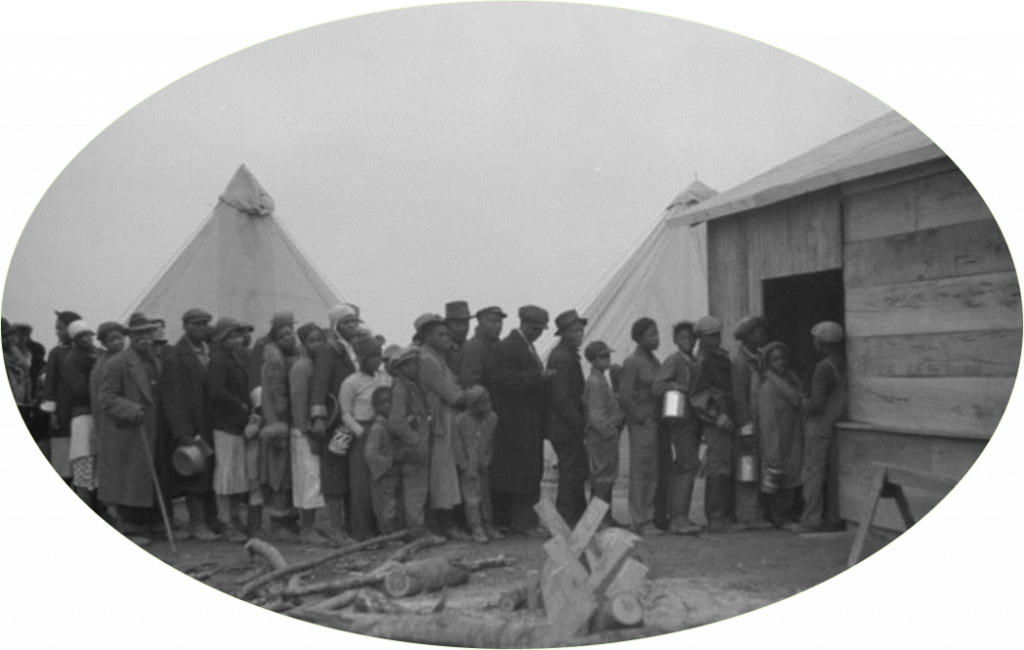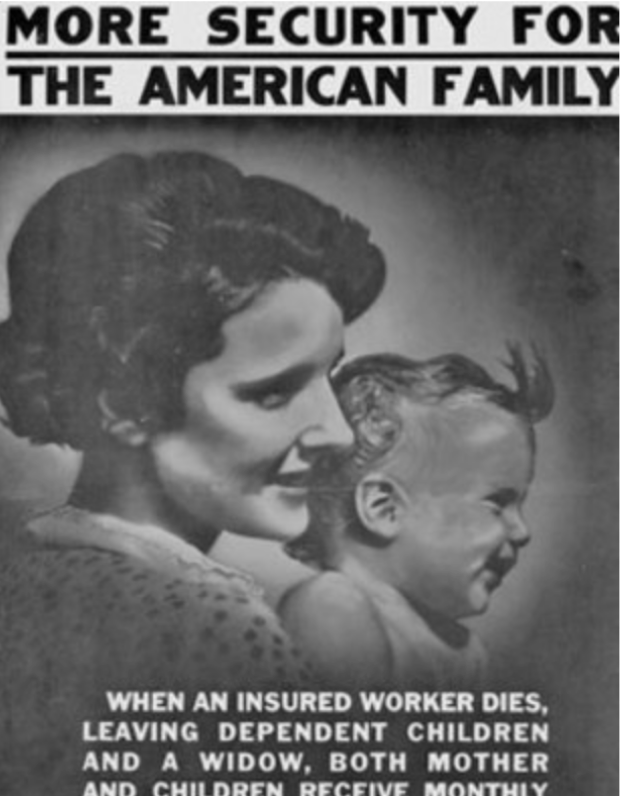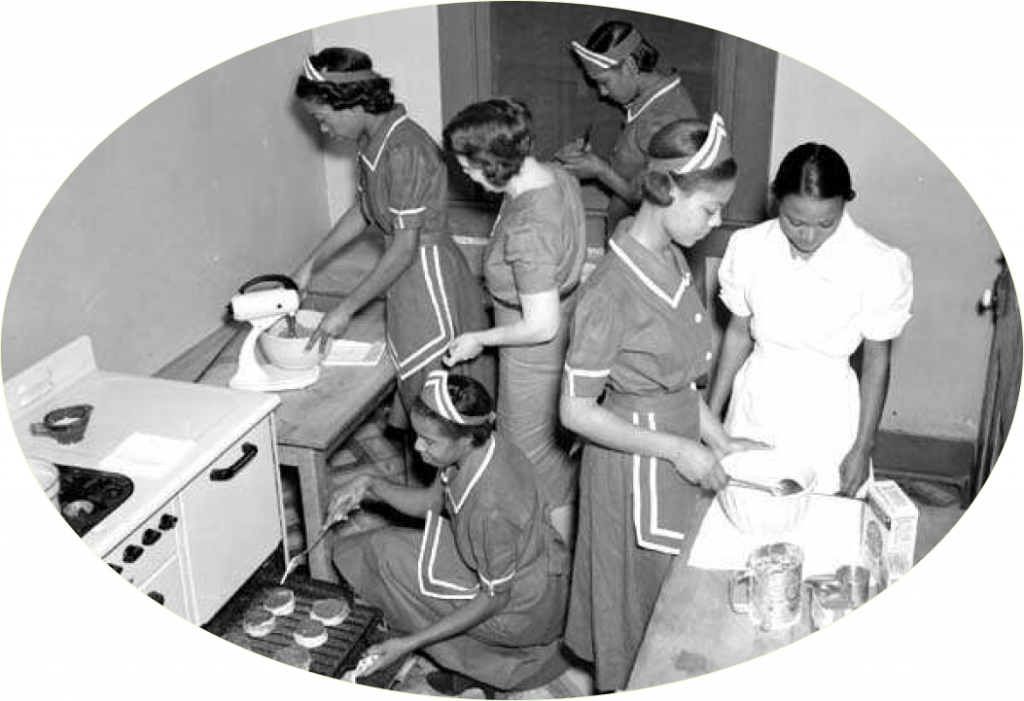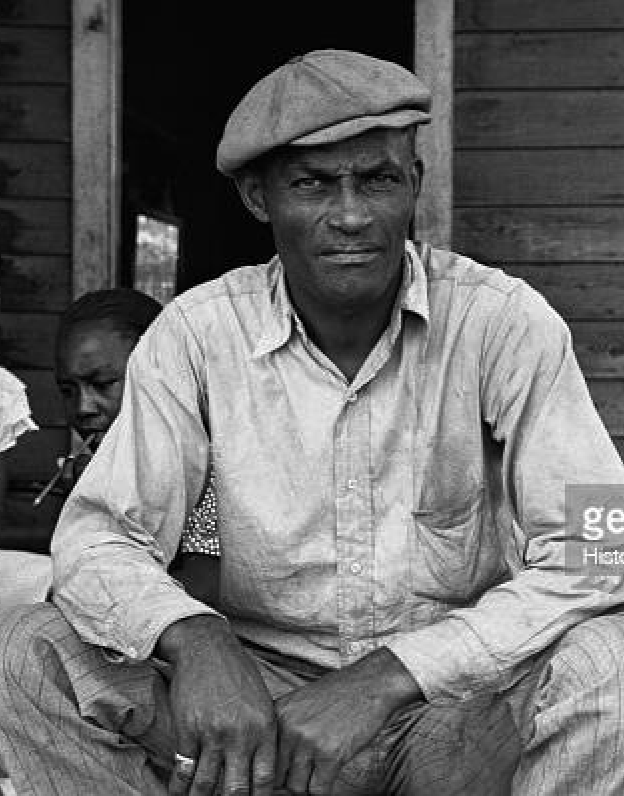Stock Market Crashes, Ushering in the Great Depression: 1929

Flood refugees in line for food, at the time of the Louisville flood in 1937.
The Great Depression devastated the United States, leaving no population untouched. No group, however, was as negatively impacted by this economic catastrophe as African Americans were.
In some Northern cities, white people called for Black workers to be fired from any job as long as there were white people out of work. Racial violence increased, especially in the South, where there was a significant rise in lynchings. [#36]

Roosevelt signs the Social Security Act into law on August 14th, 1935.

Much heralded measures to address the economic hardships experienced during the Great Depression, notably the New Deal, would exclude Black people either overtly or in practice.

Social Security, for example, didn’t apply to agricultural and domestic workers—positions likely to be held by Black people. Consequently, while 27% of white people were ineligible for Social Security in 1935, 65% of Black people were excluded, as were 70-80% of Black people in the South. [#37]

Black women complete a training program to work as maids and household servants. New Orleans, 1939.
This was especially harmful to Black women, who, “compared with other women the United States, have always had the highest levels of labor market participation regardless of age, marital status, or presence of children at home…. Black women have been the most likely of all women to be employed in the low-wage women’s jobs that involve cooking, cleaning, and caregiving.” [#38]





